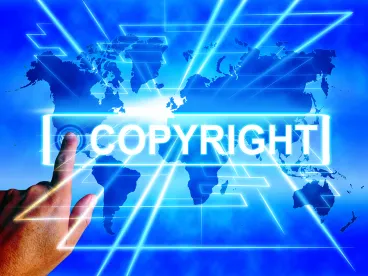Enforcement of a copyright requires that “a registration of the copyright claim has been made.” But what does this mean? On January 8, the U.S. Supreme Court heard arguments in Fourth Estate Public Benefit Corp. v. Wall-Street.com to decide the meaning of this phrase and, in particular, whether submission of the registration application is sufficient.
The statute at issue is 17 U.S.C. § 411(a), and it states:
No civil action for infringement of the copyright in any United States work shall be instituted until preregistration or registration of the copyright claim has been made in accordance with this title. In any case, however, where the deposit, application, and fee required for registration have been delivered to the Copyright Office in proper form and registration has been refused, the applicant is entitled to institute a civil action for infringement if notice thereof, with a copy of the complaint, is served on the Register of Copyrights.
The Court is being asked to determine, within the meaning of §411(a), whether registration of a copyright claim been made when the copyright holder delivers the required application, deposit, and fee to the Copyright Office or, alternatively, whether registration of a copyright claim is made only when the Copyright Office has acted on the application. There is a split in the circuit courts on this question.
Fourth Estate is an independent news organization that owns the copyrights to its journalists’ works and licenses. Fourth Estate licenses those works to a cloud based news syndicate, AHN Feed Syndicate. Wall-Street.com secured a license from AHN Feed Syndicate to use some of Fourth Estate’s works on its website. The license stated that should Wall-Street.com cancel its account with AHN, then it must remove all content AHN previously provided, including works by Fourth Estate. Wall-Street.com later canceled its account but continued to distribute works by Fourth Estate.
Fourth Estate sued Wall-Street.com in March of 2016. Prior to filing suit, Fourth Estate filed its copyright application with the Copyright Office but did not wait for a response from the Office before filing suit. Wall-Street.com moved to dismiss on the basis that §411(a) requires that a copyright owner wait for a response from the Copyright Office before filing a suit. The Eleventh Circuit agreed with Wall-Street.com holding that the statute requires an action by the Copyright Office. Fourth Estate appealed.
Questioning during oral argument suggests that the Justices are unsettled by the implication that each sentence of 411(a) could refer to different actors because the language of the two sentences is similar and they are connected by the term “however.” Justice Kagan, in particular, agreed with Fourth Estate’s argument that the term “registration” could mean different things in different sections of the Copyright Statute but that it seemed hard to assume that “registration” could mean different things in the same section given the sentence structure. The Justices seem inclined to follow a strict textualist interpretation of the statute.
The Justices also appear to be concerned about the harm to a copyright owner who has filed a registration application but cannot sue until the Copyright Office has acted on the application, which is a delay of about 7-9 months according to Fourth Estate. Fourth Estate argues that the damage to a copyright owner may occur within days or weeks of a leaked or unauthorized distribution of a work and waiting 7-9 months could irreparably damage the copyright owner and prevents the owner from exercising its right to exclude others from using the work. However, Wall-Street.com and the United States, who filed an amicus brief in support of Wall-Street.com, argued that there are other avenues for a copyright owner to pursue to prevent this type of harm, such as pre-registering a work before it is completed. Wall-Street.com also indicated that a copyright owner has the ability to file for an expedited review of the registration application, thus speeding up the registration process and limiting possible harm.
While this case seemingly focuses on a minor point, it has large implications for copyright owners and their future actions. Additionally, this case is important for corporations wading into due diligence reviews during an asset purchase or sale. As a corporation evaluates the intellectual property of a prospective company, it is important for it to review and understand the current registration status and possible infringement claims. As this case will define what actions are required by a copyright owner prior to instituting an infringement action, a corporation should understand what risks may accompany the purchase of copyrights that have not yet been acknowledged and registered by the Copyright Office and the implications for future infringement actions.
We will continue to monitor this case and keep you apprised of the Court’s decision.




 />i
/>i

